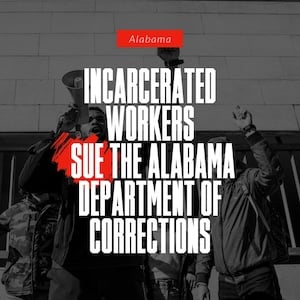 Victory: Cameroonian asylum seekers are returned to the U.S.The United States government has, since May 2024, approved the return of 27 Cameroonian asylum seekers who experienced serious harm in Cameroon after their deportation from the U.S. in 2020. While the returns were permitted on humanitarian grounds, in part based on U.S. asylum confidentiality violations that contributed to their harm in Cameroon, the asylum seekers had also experienced abuses in U.S. immigration detention, including the use of excessive force, painful full-body restraints, solitary confinement, racial discrimination, and medical neglect. The 27 people granted humanitarian parole are a small fraction of the Cameroonians in need of protection, according to advocates. In 2022, the Biden administration designated Cameroon for Temporary Protected Status (TPS), which protects Cameroonians in the U.S. from deportation for 18 months; this was later extended until June 2025. However, backlogs in processing applications have prevented thousands of Cameroonians from accessing the protection. The groups supporting the returned Cameroonians are Robert F. Kennedy Human Rights, Haitian Bridge Alliance, Human Rights Watch, Cameroon Advocacy Network, Witness at the Border, the Center for Constitutional Rights, and the Texas A&M School of Law Legal Clinics. Read the full press release on our website. | ||
 Challenging involuntary servitude in Alabama prisonsRepresenting six people incarcerated in Alabama, we went to court this week to argue against the state’s motion to dismiss our lawsuit seeking to abolish involuntary servitude in Alabama’s prisons. Our clients, who brought the case, are Trayveka Stanley, Reginald Burrell, Dexter Avery, Charlie Gray, Melvin Pringle, and Ranquel Smith. The defendants are Governor Kay Ivey and Alabama Department of Corrections (ADOC) Commissioner John Hamm. Some background: Until the fall of 2022, Alabama’s constitution still permitted slavery and involuntary servitude in prison, exploiting an infamous loophole in the Thirteenth Amendment to the U.S. Constitution. But following a successful strike by incarcerated workers, Alabama voters approved an amendment to the state constitution that expanded the ban on slavery and involuntary servitude to prison. Meanwhile, however, the state implemented three measures that authorize punishment for incarcerated people who resist forced labor. These measures should be declared unconstitutional, according to the lawsuit brought by six incarcerated people who have all been punished or threatened with punishment for refusing to work. They seek a court order to stop the defendants from forcing them to work, with the goal of abolishing involuntary servitude in Alabama’s prisons. For more information, see the case page. | ||
 Standing in support of our former Board Chair Katherine FrankeIn response to reports that Columbia University may fire or otherwise seriously sanction our former board chair, Katherine Franke, the Center for Constitutional Rights Board and Executive Director Vince Warren issued the following statement:
Read the full statement here. | ||
 Follow us on social media!Our mission and vision states:
Our social media is key to that vision. We put out cutting edge commentary, updates, and upcoming events across our social media accounts. We respond in real time to what is happening in our collective global movements for justice. Please follow us and join in the conversation. Connect with us on Facebook; on Instagram; on YouTube; on LinkedIn; and on X (formerly Twitter). |

